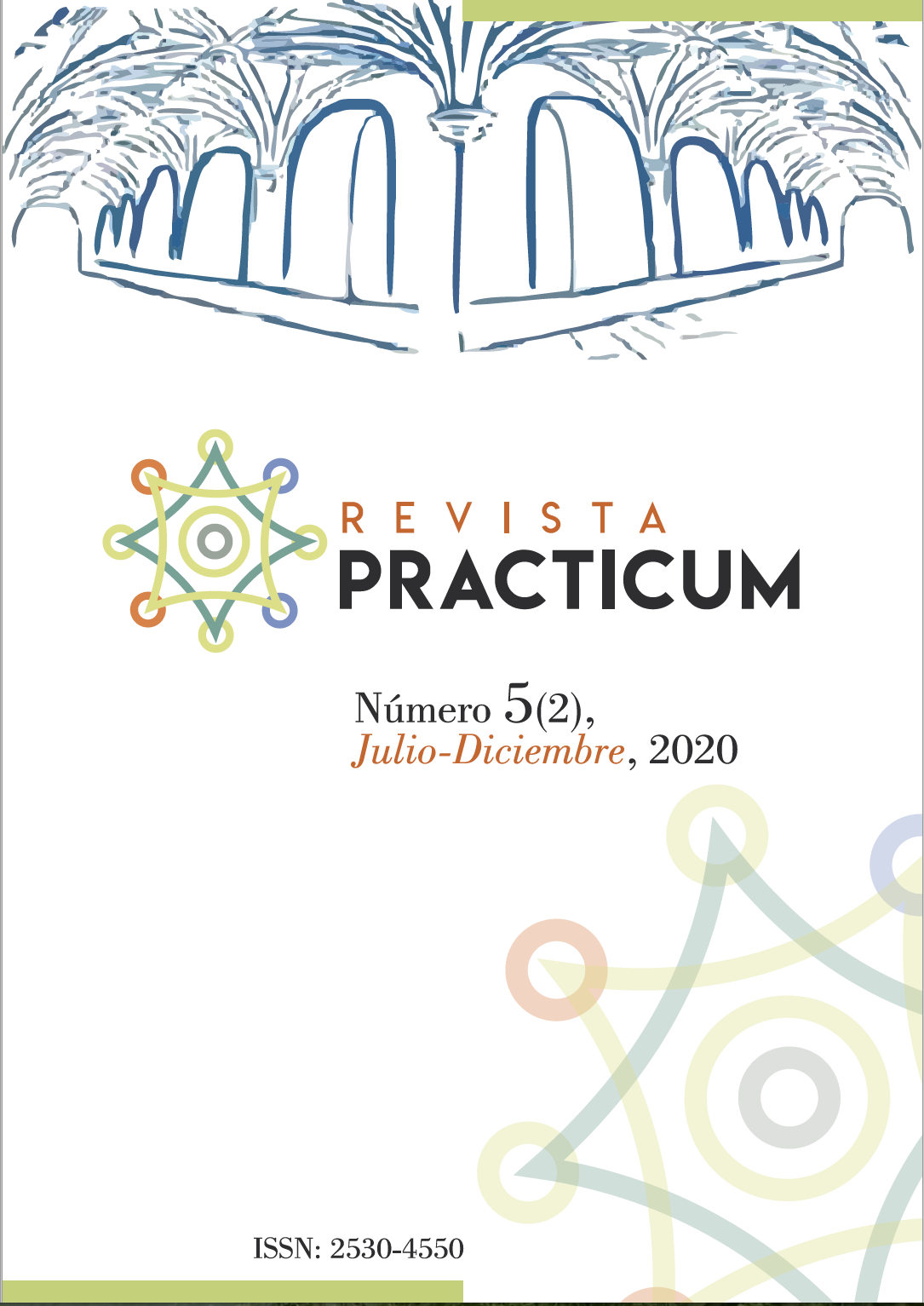Foreign languages communicative skills in Secretarial Studies
DOI:
https://doi.org/10.24310/RevPracticumrep.v5i2.10159Palavras-chave:
Role-play, Interaction, L2 learning, Communicative Language Teaching, Speaking skills.Resumo
The aim of the foreign languages teaching is to enable students to further develop and use English language skills in general and specific contexts and this aim is always achieved through the practice of the four skills - reading, writing, listening and speaking. As far as speaking skills are concerned, oral assessment and role-play situations are often used by English teachers to assess students’ skills. Students pursuing a degree in Secretarial Studies and Administrative Assistance at ESTGL and want to become successful administrative professionals must be aware of the importance of English in their future jobs and must be prepared to communicate in real contexts. This paper, using a descriptive humanistic-interpretative methodology, aims to acknowledge that role-play is one technique a language teacher can explore and to substantiate the Communicative Language Teaching approach used in the Bachelor of Secretarial Studies and Administrative Assistance. We concluded that it boosts students’ confidence and their personal interaction skills. and a maximum of 150 words.
Downloads
Métricas
##plugins.generic.pfl.publicationFactsTitle##
##plugins.generic.pfl.reviewerProfiles## Indisp.
##plugins.generic.pfl.authorStatements##
##plugins.generic.pfl.indexedIn##
-
##plugins.generic.pfl.indexedList##
- ##plugins.generic.pfl.academicSociety##
- Indisp.
- ##plugins.generic.pfl.publisher##
- Universidad de Málaga
Referências
Brown, H. D. (1987). Principles of language learning and teaching. Englewood Cliffs, NJ: Prentice-Hall.
Canale, M. (1983). From Communicative Competence to Communicative Language Pedagogy. In J. C. Richard, & R. W. Schmidt (Eds.), Language and Communication (pp. 2-14). London: Longman.
Canale, M., & Swain, M. (1980). Theoretical bases of communicative approaches to second language teaching and testing. Applied linguistics, 1(1), 2-43.
Celce-Murcia, M. (1991). Teaching English as a Second or Foreign Language. Boston, Mass.: Newbury House
Chesler, M. A., & Fox, R. S. (1966). Role-playing methods in the classroom. Chicago: Science Research Associates.
Chomsky, N. (1965). Aspects of the Theory of Syntax. Cambridge: M.I.T. Press
Crookall, D., & Oxford, R. L. (1990). Linking language learning and simulation/gaming. In D. Crookall & R. L. Oxford (Eds.), Simulation, gaming, and language learning (pp. 3-24). New York: Newbury House.
Ellis, R. (1997). SLA research and language teaching. Oxford: Oxford University Press.
Furness, P. (1976). Role-play in the Elementary School: A Handbook for Teachers. New York: Hart Publishing Company, Inc.
Guedes, A. (2009). Role Playing English. In EDULEARN09 Proceedings (pp. 564-570). Barcelona. ISBN: 978-84-612-9802-0
Hadley, A.O. (1993). Research in language learning: Principles, processes and prospects. Lincolnwood, IL: National Textbook Company.
Harmer, J. (2001). The practice of English language teaching. Harlow: Longman.
Harrington, M. (2002). The Oxford handbook of applied linguistics. New York: Oxford University Press.
Hymes, D. H. (1966). Two types of linguistic relativity. In Bright, W. (ed.). Sociolinguistics. (pp. 114–158). The Hague: Mouton.
Hymes, D. H. (1972). On Communicative Competence. In J. B. Pride, & J. Holmes (Eds.), Sociolinguistics: Selected Readings (pp. 269-293). Harmondsworth: Penguin.
Jones, K. (1982). Simulations in language teaching. Cambridge: Cambridge U. Press.
Juffs, A. (2002). The Oxford handbook of applied linguistics. New York: Oxford University Press.
Kaplan, R. B. (Ed.). (2002). The Oxford Handbook of Applied Linguistics. Oxford: Oxford University Press.
Krashen, S. D. (1981). Second language acquisition and second language learning. Oxford: Pergamon Press.
Krashen, S. (1982). Principles and practice in second language acquisition. New York: Prentice-Hall.
Ladousse, G. P. (2004). Role Play. Oxford: Oxford University Press.
Lantolf, J. P. (2002). Sociocultural theory and second language acquisition. New York: Oxford University Press.
Larsen-Freeman, D. (2000). Techniques and principles in language teaching. New York: Oxford University Press.
Littlewood, W. (1981). Communicative language teaching. Cambridge: Cambridge University Press.
Livingstone, C. (1983). Role play in language learning. Harlow, Essex : Longman
Mitchell, R., & Myles, F. (1998). Second language learning theories. London: Edward Arnold.
Nunan, D. (1989). Designing tasks for the communicative classroom. New York: Cambridge University Press.
Richards, J. C., & Rodgers, T. (2001). Approaches and methods in language teaching. Cambridge: Cambridge University Press.
Scarcella, R., & Oxford, R. L. (1992). The tapestry of language learning. Boston: Heinle and Heinle.
Schmidt, R. W. (1990). The role of consciousness in second language learning. Applied Linguistics, Vol. 11, Issue 2, 129-158. https://doi.org/1o.1093/applin/11.2.129
Siddiqui, M. (2008). Models of teaching. New Delhi: APH Publishing Corporation
Stern, H. H. (1983). Fundamental Concepts of Language Teaching. Oxford, England: Oxford University Press.
Tompkins, P. (1998). Role Playing/Simulation. The Internet TESL Journal, Vol. IV, No. 8. Retrieved from http://iteslj.org/Techniques/Tompkins-RolePlaying.html
Swaffar, J., & Bacon, S. (1993). Research in language learning: Principles, processes, and prospects. Lincolnwood, IL: National Textbook Company.
Warschauer, M. (2000). On-line learning in second language classrooms: An ethnographic study. In M. Warschauer, & R. Kern (Eds.), Network-Based Language Teaching: Concepts and Practice (pp. 41-58). New York: Cambridge University Press. doi:10.1017/CBO9781139524735.005
Warschauer, M., & Kern, R. (2000). Network-based language teaching: Concepts and Practice. New York: Cambridge University Press. doi:10.1017/CBO9781139524735.005
White, L., Bruhn-Garavito, J., Kawasaki, T., Pater, J, & Prevost, P. (1997). Problems of ambiguity and preference in the investigation of reflexive binding. Language Learning, vol. 47, issue 1, 145-172. https://doi.org/10.1111/0023-8333.41997004
Widdowson, H. G. (1990). Aspects of language teaching. Hong Kong: Oxford University
Downloads
Arquivos adicionais
Publicado
Como Citar
Edição
Seção
Licença
A aceitação da obra implica a cedência do autor à Revista Prácticum, em exclusividade, dos direitos de reprodução, distribuição e venda da sua obra em todo o mundo, tanto em formato digital como em papel, CD- ROM, entre outros.
Os autores cederão igualmente à Revista Prácticum os direitos de difusão e comunicação pública na internet e nas redes informáticas, bases de dados, e qualquer outro portal ou dispositivo eletrónico para consultas online dos seus conteúdos e extratos, de acordo com as condições do portal, dos repositórios ou das bases de dados em que se encontre a obra.
A Revista Prácticum concede aos autores a publicação e difusão dos seus artigos e obras nas suas páginas pessoais na internet, equipas de investigação, repositórios institucionais e bases de dados científicas, sempre de acordo com o estipulado na Licença Creative commons 3.0










8.png)








